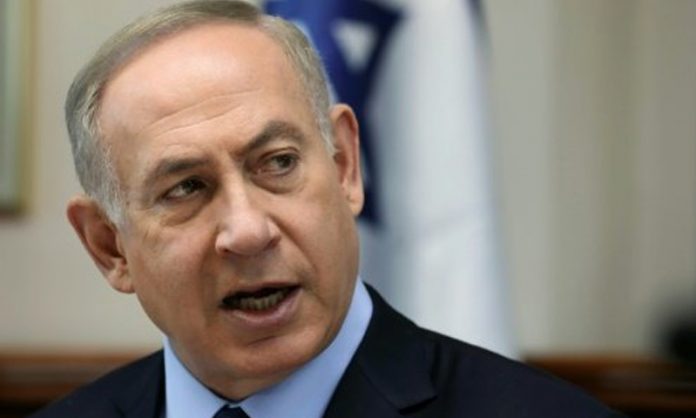In campaign mode before the April 9 elections, Israeli Prime Minister Benjamin Netanyahu announced an expansion of Jewish settlements in the occupied Palestinian territories through constructing more than 20,000 new houses in East Jerusalem in the next five years.
The illegal settlement projects in the occupied territories have been seen as a pillar of the electoral campaign launched by Netanyahu’s government. “We signed an agreement in the framework of construction of 23,000 new housing units in Jerusalem with an investment of one billion shekels [$276 million],” Netanyahu announced on social media accounts. He claimed Jerusalem was not simply a place for living accommodations, but Israel’s “capital.” As he has repeatedly called Israel the nation-state of “the Jewish people” only, his remarks drew dire international criticisms.
“I strongly condemn this blatant racism and discrimination,” Turkey’s Presidential Spokesperson İbrahim Kalın wrote on his official Twitter account both in Turkish and English. “[Some] 1.6 million Arabs/Muslims live in Israel. Will the Western governments react or keep silent under pressure again?” he asked. Netanyahu has been accused by critics of demonizing Israeli Arabs, who make up some 17.5 percent of the population, in a bid to boost right-wing turnout for April polls.
Settlements are one of the most heated issues in efforts to restart Israeli-Palestinian peace talks, frozen since 2014. The Israeli authorities approved construction of 10,298 new Jewish settlement units in the occupied territories last year, according to a report released in January by the Palestinian Liberation Organization (PLO). The move further diminishes the chances for two-state solution for the Israeli-Palestinian conflict. The international community regards all Israeli settlements in occupied Palestinian territories to be illegal and a major obstacle to Middle East peace. The area, captured by Israel in 1967, is not sovereign Israeli territory, and Palestinians there are not Israeli citizens and do not have the right to vote. Some 500,000 Israelis live in the West Bank and east Jerusalem, areas that are also home to more than 2.6 million Palestinians. Palestinians have long argued that Israeli settlements could deny them a viable and contiguous state.
The Palestinian Authority (PA) earlier stated that Israel stepped up settlement construction in east Jerusalem after U.S. President Donald Trump officially recognized Jerusalem as Israel’s capital earlier this year. The PA further accuses the U.S. administration of failing to criticize Israeli settlement activity since U.S. President Donald Trump won the White House in late 2016.





